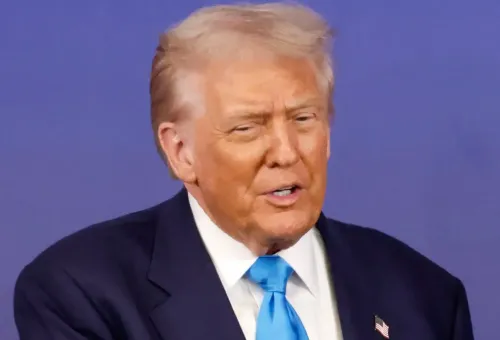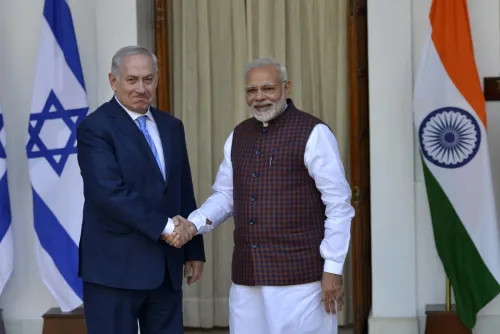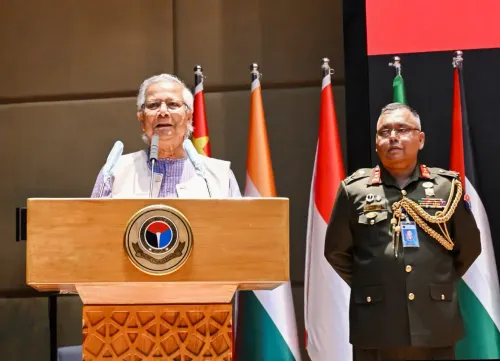US Justifies Steel Tariffs Against India at WTO on National Security Grounds

Synopsis
Key Takeaways
- The US cites national security for steel tariffs.
- India challenges the US's classification of tariffs.
- WTO consultations requested by India.
- US claims tariffs are not safeguard measures.
- Section 232 cited as the legal basis for tariffs.
New Delhi, April 18 (NationPress) The US has notified the World Trade Organisation (WTO) that the decision by the Donald Trump administration to impose tariffs on steel and aluminium was based on national security considerations and should not be regarded as safeguard measures.
This response from the US came after India submitted a request to the WTO on April 11 for consultations regarding the tariff increases in accordance with the WTO's Safeguards Agreement.
India contends that regardless of the US's classification of these measures as security-related, they fundamentally act as safeguard measures.
Additionally, India highlighted that the US has not fulfilled its obligation to notify the WTO Committee on Safeguards about the decision to implement these measures as mandated by the Agreement on Safeguards.
In its reply to the WTO dated April 17, the Trump administration asserted: "The US observes that India's request for consultations under Article 12.3 of the Agreement on Safeguards is predicated on the assumption that the tariffs are safeguard measures. The President enacted the tariffs on steel and aluminium under Section 232, which stipulates that such tariffs are necessary to adjust imports of steel and aluminium products that jeopardize the national security of the US," Washington remarked in its communication to the WTO on April 17.
The US further argued that Section 232 is characterized as a national security statute, and the tariffs are maintained under the security exception permitted by a provision of the General Agreement on Tariffs and Trade (GATT) 1994.
The US defense also clarified that these tariffs were not imposed in accordance with the Trade Act of 1974, which is the legal framework under which the US typically applies safeguard measures.
"The United States is not upholding these actions under the safeguards/emergency action provision. These actions do not qualify as safeguard measures, and thus there is no foundation for conducting consultations under the Agreement on Safeguards concerning these measures," the US declared in its defense.









